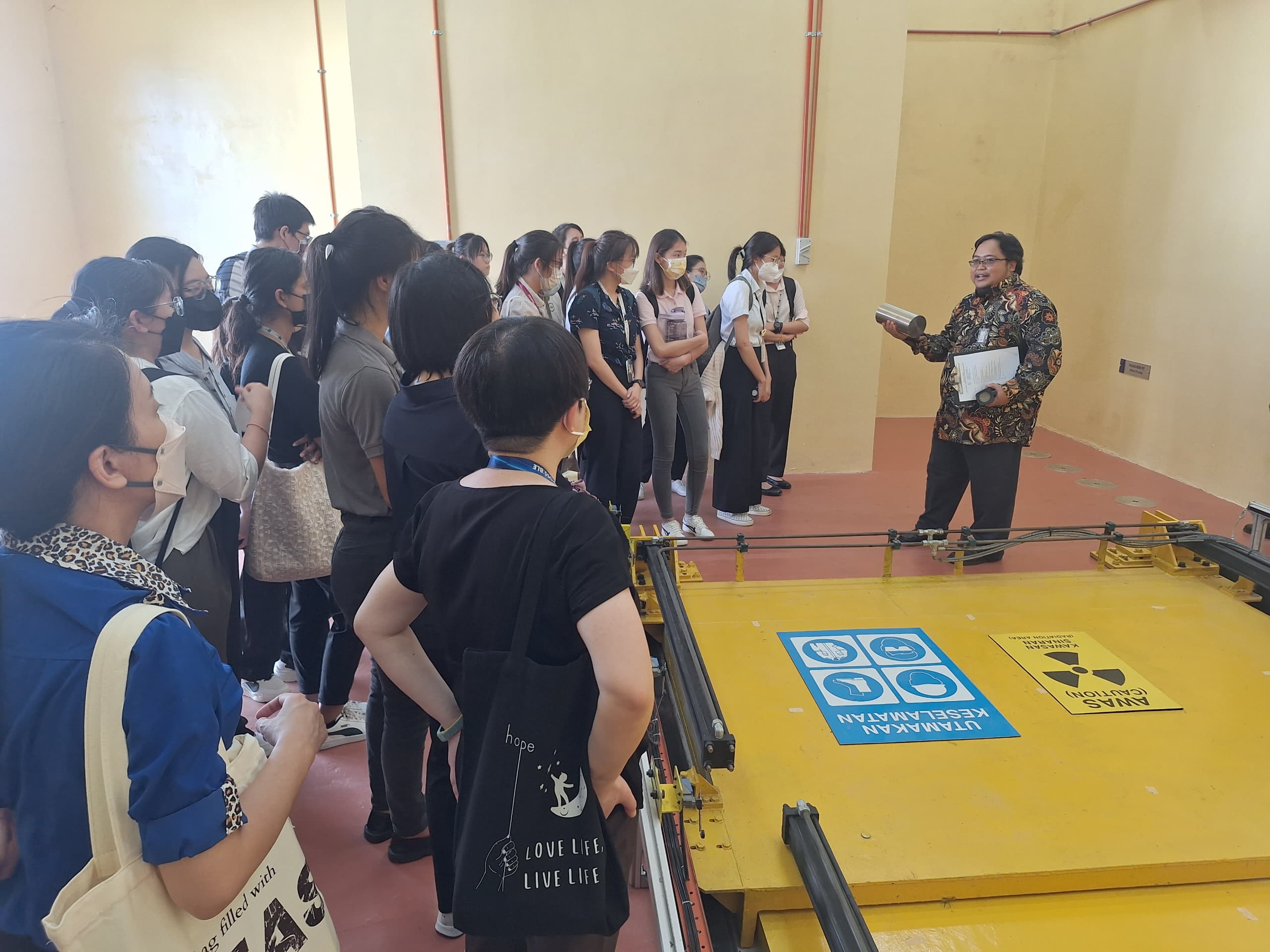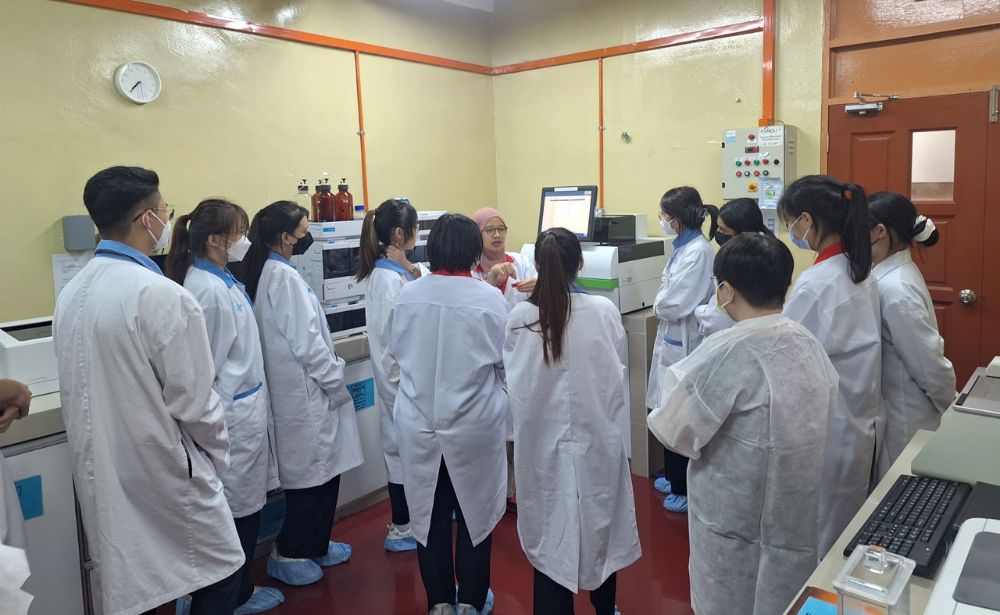On the 10th of May, 2023, at 8 am, BPharm (Hons) students embarked on an illuminating visit to the Malaysia Nuclear Agency, located in Bangi. This visit was not merely an excursion but a profound learning experience that offered students an in-depth understanding of the production line for radiopharmaceutical therapeutic products.
The visit encompassed various aspects of radiopharmaceutical production and quality control, providing students with invaluable insights into real-world practices. Among the areas visited were:
1. Disposal of Radioactive Waste: The students were given a glimpse into the critical process of disposing of radioactive waste. They learned about the meticulous procedures involved in handling and disposing of materials that carry a risk of radioactivity. This knowledge is essential in maintaining safety standards and environmental responsibility.
2. Radioactive Water Treatments: Understanding the treatment of radioactive water is of utmost importance in maintaining the purity of water used in radiopharmaceutical production. Students had the opportunity to witness these processes firsthand, gaining a deeper appreciation for the meticulous nature of this aspect of production.
3. Radiopharmaceutical Products Production and Quality Control: The core of the visit was centered around the production of radiopharmaceutical products. Students observed the intricacies involved in the manufacturing process and the stringent quality control measures that ensure the safety and efficacy of these products.
4. Chemistry, Biology, and Cell Culture Facilities: The visit also included tours of the chemistry, biology, and cell culture facilities at the Malaysia Nuclear Agency. These facilities play a crucial role in the research, development, and quality control of radiopharmaceuticals. Students gained insight into the advanced technologies and techniques used in these fields.
One of the key takeaways from this visit was the emphasis on safety. Students learned about the importance of adhering to the “Shield, Time, Distance” (STD) principle when handling radioactive products. This principle serves as a vital guideline for minimizing exposure to radiation, reinforcing the significance of safety measures in this field.
In conclusion, the visit to the Malaysia Nuclear Agency was a significant opportunity for BPharm (Hons) students to bridge the gap between theory and real-world application. They gained profound insights into radiopharmaceutical production and quality control, learning the intricacies of various processes while also recognizing the paramount importance of safety in handling radioactive materials. This experience not only enhanced their academic knowledge but also provided them with a deeper understanding of the responsibilities and standards involved in this critical field of healthcare.



